Pricing Your Rental Property Competitively in the Jupiter Market
Pricing a rental property in a competitive market like Jupiter requires a comprehensive understanding of both the local rental trends and the broader factors affecting property values. Setting the right price can be the difference between your property remaining vacant for months or securing a steady stream of reliable tenants. This guide will walk you through the key steps to price your rental property competitively in the Jupiter real estate market, backed by actionable advice and real-world examples.
Understanding the Jupiter Rental Market
Analyzing Local Market Trends
Before deciding on a price for your rental property, it’s crucial to analyze the local rental market. Jupiter, Florida, is known for its picturesque beaches, excellent schools, and affluent residential communities, making it a highly desirable location for both short-term and long-term renters. However, these attractions also mean that rental prices fluctuate based on demand, seasonality, and economic trends.
To understand the pricing structure in Jupiter, start by examining local rental listings on real estate platforms such as Zillow, Realtor.com, and local listing sites. Pay attention to:
- Average Rental Prices: Identify the average rental rates for properties similar to yours in terms of size, location, and amenities.
- Demand and Supply: The rental market can be affected by seasonal trends. For instance, demand tends to increase during the winter months when many people visit Jupiter for its warm weather, making this an opportune time to raise rent or secure long-term tenants.
- Property Type and Amenities: Jupiter has a mix of upscale properties, townhomes, and condos. Luxury homes and properties with amenities like pools, waterfront views, and proximity to golf courses often command higher rental prices.
Key Factors Influencing Rental Rates in Jupiter
When setting your rental price, take into account factors unique to the Jupiter area:
- Location: Properties located near the beach, in gated communities, or close to schools and shopping areas can demand a premium price.
- Property Features: Renovated homes with modern features, energy-efficient appliances, or updated kitchens and bathrooms tend to attract higher rental prices.
- Neighborhood Appeal: Communities like Abacoa, which is known for its family-friendly atmosphere, and the waterfront areas near Jupiter Inlet, can support higher rental rates due to their desirability.
By taking a data-driven approach to analyzing the local market, you can better understand the pricing landscape in Jupiter and make more informed decisions.
Determining the Right Price: A Step-by-Step Guide
Step 1: Compare Similar Properties
The first step in setting a competitive rental price is comparing your property to others in the market. This is often called a “comparative market analysis” (CMA). Here’s how you can conduct one:
- Select Comparable Properties: Look for properties that are similar in size, condition, and location. If your property is a three-bedroom home, compare it to other three-bedroom homes in the same neighborhood.
- Adjust for Differences: If your property has unique features, such as a private pool or a new renovation, adjust your rental price to reflect these benefits. For example, if a similar property without a pool is listed at $2,000, you might adjust your price to $2,300 if your property has this feature.
- Take Note of Rent History: Research how rental prices have shifted in the area over the past year. If rental prices have been steadily increasing, you might price your property higher. Conversely, if prices have been stagnating or declining, you may need to adjust your expectations.
Step 2: Assess Market Conditions
Market conditions will heavily influence your rental pricing. It’s crucial to adjust your strategy according to the current economic climate and real estate trends in Jupiter. There are two main scenarios to consider:
- High Demand (Seller’s Market): If there’s an influx of people relocating to Jupiter or if you’re in the high-demand season (e.g., winter), you can price your property toward the higher end of the market.
- Low Demand (Buyer’s Market): If there’s an oversupply of rental properties or the demand drops (e.g., during the summer months), you may need to lower your rental price to remain competitive.
To get a better understanding of market conditions, keep track of the vacancy rates and rental trends in Jupiter. If properties are sitting on the market for long periods, it might indicate oversupply or that rental prices are too high.
Step 3: Factor in the Cost of Ownership
While you want to price your property competitively, you must also ensure that your rental income covers the costs of ownership. These costs include:
- Mortgage Payments: Your monthly mortgage payments should be considered when determining the rent amount. Typically, rental income should cover the mortgage and leave room for profit.
- Property Taxes and Insurance: In addition to your mortgage, property taxes and insurance premiums need to be factored into the pricing.
- Maintenance and Repairs: Regular maintenance costs, such as lawn care, pest control, and general upkeep, should be included in your pricing calculations. Be sure to budget for unexpected repairs as well.
A good rule of thumb is to ensure that your rental income exceeds the sum of these costs by 10-15% to provide a cushion for vacancies, maintenance, and other unforeseen expenses.
Setting Competitive Rent: Best Practices
Leverage Professional Property Management Insights
If you’re new to renting in Jupiter or struggling to determine the right price, consulting with a local property management company can provide valuable insights. Property managers are experts in the local market and can help with everything from setting rent to screening tenants. For example, property managers can provide:
- Market Data: Professional property managers track rental market trends and can provide data on the optimal rent range for your property.
- Expert Pricing Advice: A property manager can offer pricing strategies based on their experience in the area. They’ll help you avoid underpricing your property, which can result in lost rental income, or overpricing, which can lead to extended vacancies.
Start with a Slightly Lower Price
One strategy that can help you secure tenants more quickly is to start with a slightly lower rental price than your competition. This approach can attract more interest and result in multiple applications. Once you’ve built a track record of reliability and tenant satisfaction, you can consider raising the rent to the market rate or just slightly above it.
For example, if comparable properties are renting for $2,500 per month, consider listing yours for $2,400. The lower price could help you fill vacancies faster and build a positive reputation as a landlord.
Monitor the Market Regularly
Even after setting a competitive rent, it’s important to monitor market trends and adjust your pricing as necessary. If you notice that your property is sitting vacant for an extended period, consider lowering the price or offering incentives, such as a free month’s rent or a flexible lease term. Conversely, if you’re receiving multiple applications, it might indicate that you’re underpricing the property, and you can consider adjusting the rent upwards to match market conditions.
Offer Special Promotions
In some cases, offering special promotions can make your rental property stand out in a crowded market. Consider offering:
- Move-In Specials: A discount on the first month’s rent or a free month at the beginning of the lease can be an attractive incentive for tenants.
- Flexible Lease Terms: Offering shorter lease terms or allowing tenants to choose the start and end dates of their lease can appeal to renters looking for more flexibility.
These promotions can help attract tenants, but be careful not to devalue your property by offering too many discounts or overly flexible terms. The goal is to provide added value without diminishing the overall rental price.
By following these strategies and understanding the factors that impact rental pricing in the Jupiter market, you can set a competitive price for your property that maximizes both occupancy rates and profitability.

Get a Free Rental Analysis
Want to know how much your home will rent for? We’ll send you a free rental report!
Advanced Strategies for Optimizing Rental Pricing in the Jupiter Market
As you move beyond the basics of competitive rental pricing, it’s essential to explore more advanced strategies that will help you not only attract tenants but also maximize the profitability of your rental property in Jupiter. In this section, we’ll dive deeper into actionable tactics, including understanding tenant psychology, leveraging technology for price optimization, and strategies for long-term success in the rental market.
Leveraging Technology for Price Optimization
Rental Price Tools and Software
In today’s digital world, property owners have access to a variety of tools and software that can help optimize rental pricing. These tools can analyze thousands of data points from multiple sources and provide you with accurate market insights, helping you make better pricing decisions.
Some popular price optimization tools include:
- Zillow Rental Manager: Zillow’s tool offers detailed market analysis, which includes rental estimates based on comparable properties. You can also track changes in local market conditions to adjust your prices accordingly.
- Rentometer: This platform allows you to compare your property’s rent with similar properties in your area. It also provides a price recommendation based on the local market.
- AirDNA: If you’re in the short-term rental market (like Airbnb or Vrbo), AirDNA offers pricing recommendations based on real-time rental data, seasonal trends, and competitor analysis.
By using these tools, you can streamline your pricing strategy and ensure that your property remains competitive within the local market, even as market conditions change.
Automated Rent Adjustments
Many property management software platforms allow you to set automated rent adjustments based on market trends. For instance, if you’re using a property management system such as Appfolio or Buildium, you can enable dynamic pricing options that automatically adjust rent based on the demand in your area. This ensures that you are always in line with current market rates without needing to manually update your listing.
These technologies help you optimize pricing quickly and efficiently, especially if you own multiple rental properties in different areas of Jupiter.
Understanding Tenant Psychology to Set the Right Rent
The Power of Perceived Value
While the numbers are important, it’s also essential to understand the psychology behind tenant decision-making. Renters are often willing to pay slightly more for a property they perceive as having high value, even if the actual price is similar to others in the area. Therefore, pricing your property effectively involves managing tenants’ perceptions and focusing on the value you offer.
Key aspects to emphasize to increase perceived value include:
- Highlighting Unique Features: If your property offers premium features such as modern appliances, a large backyard, or a newly renovated kitchen, make sure these features are front and center in your marketing materials. Tenants may be willing to pay more if they feel like they’re getting additional value.
- Professional Staging and Photography: High-quality, professional photos can significantly improve the perceived value of your property. A well-staged property that looks inviting and spacious can justify a higher rental price in the eyes of potential tenants.
- Tenant Amenities: If your property offers amenities like an in-unit washer and dryer, free parking, or access to a gym, these should be highlighted in your listings as they can increase perceived value.
Price Anchoring: Set a High Initial Price
An advanced pricing strategy involves starting with a higher rent and then gradually offering a slight reduction or a special deal. This tactic, known as “price anchoring,” relies on the psychological effect of an initial high price point.
Here’s how it works:
- List your property slightly above the average market price, then provide a special offer like the first month free or a reduced rent for the first six months.
- When tenants compare your property to others, they may view your property as offering a better deal due to the initial high price and subsequent discount.
For example, if similar properties are priced at $2,500, you could list your rental at $2,700 but offer the first month for free. This will make renters feel like they are getting a great deal, even though they are paying less than the initial asking price.
Rent Increases and Lease Renewals
For long-term rental properties, rent increases can be a delicate issue. Renters are often hesitant to accept a new lease if they know the rent will increase substantially after a year. To avoid losing tenants, consider the following strategies:
- Gradual Rent Increases: Instead of imposing a large rent hike, increase the rent gradually each year by a percentage that matches or slightly exceeds inflation (typically 3-5% annually).
- Lease Renewal Incentives: Offer tenants a small rent discount for renewing their lease early. This can incentivize them to stay longer, reducing vacancy rates and giving you more stability in your rental income.
These tactics help balance your need for profit with tenant retention, creating long-term relationships that reduce turnover costs.
Offering Flexible Lease Terms to Attract More Renters
The Appeal of Short-Term Leases
In the Jupiter market, some renters may be looking for more flexible lease terms, particularly for seasonal or corporate relocations. Offering short-term rental options, such as three- or six-month leases, can open up your property to a wider range of potential tenants, particularly during the off-season months when demand may be lower.
This is especially beneficial if your property is located in high-demand areas like Abacoa or near the beach, where tenants may prefer flexibility due to job transfers or temporary relocations.
Short-term leases are particularly popular among:
- Seasonal Residents: Many people relocate to Jupiter for the winter months to escape colder climates, and they may prefer the flexibility of a short-term lease rather than committing to a full-year rental.
- Corporate Tenants: Professionals on temporary assignments or business trips may need short-term housing with the option to extend the lease.
To take advantage of this, adjust your pricing structure to accommodate the higher rent typical of short-term leases. While you may charge more on a per-month basis, tenants will appreciate the flexibility, and you may attract higher-paying renters who value convenience.
Month-to-Month Rental Options
Another way to offer flexibility is by providing month-to-month rental agreements. These contracts appeal to tenants who are unsure of their long-term plans but need a place to stay. However, keep in mind that this arrangement may require you to charge a premium rent due to the increased risk and uncertainty involved.
Month-to-month rentals can benefit you by:
- Allowing Flexibility for Rent Increases: You have the ability to adjust rent at any time to match the market rate.
- Reducing Vacancy Periods: With no long-term commitment, you may have a better chance of filling your property quickly if a tenant moves out unexpectedly.
However, month-to-month agreements may lead to more frequent turnover, which can be time-consuming and costly. Consider whether the benefits of flexibility outweigh the challenges of higher turnover before offering such arrangements.
Managing the Balance Between Occupancy and Rent
The Importance of Vacancy Loss
Vacancy loss refers to the income lost when your property is unoccupied. This is a significant factor to consider when setting your rental price. While it may be tempting to increase rent to maximize profits, a higher price could lead to extended vacancies if demand is lower than expected.
To mitigate vacancy loss, consider these best practices:
- Monitor Occupancy Rates: Stay on top of your occupancy rates and make price adjustments if your property is vacant for too long.
- Offer Incentives for Quick Occupancy: If your property has been sitting vacant for an extended period, consider offering a small incentive (such as a move-in discount) to attract tenants quickly.
Balancing your rent with demand is crucial to ensure that your rental property remains profitable while minimizing vacancies.

Long-Term Strategies for Pricing and Maintaining Rental Property Success in Jupiter
In this final section, we will explore long-term strategies for rental property pricing in Jupiter. These strategies will not only help ensure your property stays competitive in the local market but also provide insights into maintaining consistent rental income, building strong tenant relationships, and adapting to market changes over time.
Keeping Your Property in Demand: Long-Term Marketing Strategies
The Power of Property Updates
Over time, even the most well-maintained properties can begin to show signs of wear. Keeping your property in top condition is essential for maintaining its appeal to renters, especially if you’re aiming for long-term profitability. Regular updates and renovations can make a big difference in both attracting new tenants and retaining existing ones.
Consider the following improvements:
- Kitchen and Bathroom Renovations: Kitchens and bathrooms are often the most important spaces for renters. A modern kitchen with updated appliances or a bathroom with new fixtures can significantly increase your property’s value and rental potential.
- Energy-Efficient Upgrades: Adding energy-efficient features like LED lighting, smart thermostats, or better insulation can help reduce utility costs, making your property more attractive to renters who want to save on monthly expenses.
- Fresh Paint and Flooring: A fresh coat of paint and updated flooring can refresh the entire feel of a property, especially in high-traffic areas like living rooms and hallways.
These types of renovations can justify a higher rental price and help your property stand out in the competitive Jupiter rental market.
Professional Marketing and Listing Updates
Marketing your rental property effectively is an ongoing effort. A well-crafted listing with professional photos and clear, informative descriptions can help your property attract attention from prospective tenants. This should be updated regularly, especially if you make improvements or renovations.
Here are some best practices for marketing your rental property:
- Online Listings: Post your rental on popular rental listing websites such as Zillow, Apartments.com, and Rent.com. These platforms have massive reach and allow you to target a broad audience.
- Social Media: Leverage social media platforms like Facebook and Instagram to market your property. These platforms allow you to share high-quality photos and videos, and you can target specific audiences based on location, interests, and more.
- Targeted Advertising: Use paid advertising on websites like Facebook or Google to reach individuals who are actively searching for rental properties in Jupiter. You can adjust targeting parameters to ensure your ad reaches people interested in long-term or short-term rentals.
By continuously updating your marketing strategy and improving your property’s appeal, you ensure a steady stream of interested tenants at competitive prices.
Building Long-Term Relationships with Tenants
The Importance of Communication and Customer Service
One of the keys to long-term success in the rental market is fostering good relationships with your tenants. Satisfied tenants are more likely to stay longer, reducing turnover costs, and they are also more inclined to care for the property, reducing maintenance expenses.
Effective communication is vital for maintaining a positive relationship with your tenants. Here are some tips for maintaining open, positive communication:
- Be Responsive: Tenants value landlords who respond quickly to maintenance requests and inquiries. Make sure you have a system in place to address tenant concerns promptly.
- Respect Tenant Privacy: Respecting a tenant’s privacy is critical. Make sure to provide adequate notice before entering the property for inspections or maintenance, and follow local laws regarding entry notifications.
- Clear Lease Agreements: Clearly outline all terms of the lease agreement, including rent payment due dates, maintenance responsibilities, and any rules or restrictions. Tenants are more likely to stay when they understand what’s expected of them.
Encouraging Lease Renewals
Keeping tenants in place is one of the most effective ways to maintain steady rental income. Offering incentives for lease renewals can reduce turnover rates and keep your property occupied. Here are a few ways to encourage your tenants to renew their lease:
- Offer Rent Discounts for Early Renewal: If a tenant is approaching the end of their lease, offer them a discount if they sign a new lease early. This helps ensure you won’t have to spend time and money finding a new tenant.
- Upgrades for Renewing Tenants: Offering small property upgrades or improvements (such as new appliances or fresh paint) can also encourage tenants to stay longer.
- Flexible Renewal Terms: Consider offering tenants flexible renewal terms, such as the option to extend the lease for a shorter term if they’re unsure about staying for another full year. This provides peace of mind for both parties.
By fostering strong tenant relationships and offering incentives for renewal, you can minimize vacancies and create a more stable rental income stream.
Adapting to Market Changes: How to Stay Competitive Over Time
Monitoring Local Market Trends
The rental market is constantly evolving. To stay competitive, it’s crucial to stay informed about changes in the local Jupiter market. Regularly monitor factors that could impact rental demand, such as:
- Seasonal Trends: Jupiter sees a significant influx of seasonal residents, especially during the winter months. This can lead to higher demand for rental properties during specific times of the year, which may allow you to increase rents temporarily.
- Economic Factors: Economic factors such as job growth, local business developments, and housing construction projects can influence the rental market. For example, if new businesses open in the area, it could increase demand for rental properties in Jupiter, allowing you to increase your rates.
- Rent Control Laws: It’s also important to stay updated on local rent control laws or tenant protection regulations. Any changes in rent control could have a direct impact on how you price and increase your rent over time.
Regularly reviewing market trends will help you make informed decisions when it comes to pricing adjustments.
Responding to Economic Shifts
The rental market can be particularly susceptible to economic shifts. For instance, during times of economic downturn, demand for rental properties might decrease, leading to lower rents. Conversely, when the economy is doing well, rents may rise as more people move to Jupiter for job opportunities or lifestyle changes.
To respond to economic shifts effectively:
- Adjust Rent Gradually: If demand decreases, consider lowering your rent incrementally instead of drastically cutting the price. This allows you to find a balance between staying competitive and maintaining profitability.
- Market Your Property as a Value Option: In tougher times, position your property as an affordable option by highlighting its features, location, and amenities that set it apart from more expensive alternatives.
- Be Prepared for Vacancy Increases: During economic downturns, it may take longer to fill vacancies. Be patient and adjust your pricing strategy as necessary to remain competitive.
Building Long-Term Equity Through Property Value
Pricing your rental property is not just about the short-term rental income—it’s also about building long-term equity. Over time, as you manage and maintain your property, its value will likely appreciate. With regular improvements and smart management practices, your property’s value can increase, allowing you to either refinance for better terms or sell at a higher price in the future.
When setting rental prices, consider the long-term investment aspects. If your property’s market value appreciates, you can either adjust rental prices accordingly or choose to hold the property for future capital gains.
By incorporating these advanced pricing strategies and best practices into your rental property management plan, you can ensure that your property remains competitive in the Jupiter market. Whether you are managing long-term rentals or short-term vacation properties, adopting a data-driven, tenant-focused approach to pricing will help maximize both tenant satisfaction and your financial returns.
Suggested Relevant Links:
Transitioning from Primary Residence to Long-Term Rental
How to Choose the Right Property Management Company in Palm Beach County
The Benefits of Using a Local Property Management Company in Jupiter, FL
The Role of Property Management in Maximizing ROI for Palm Beach County Landlords
Frequently Asked Questions (FAQ) on Pricing Your Rental Property Competitively in the Jupiter Market
1. How do I determine the right rental price for my property in Jupiter?
Research similar properties in your area, known as “comps,” to understand the local market. Use websites like Zillow and Realtor.com for pricing insights. A local real estate agent or property manager can also offer valuable advice on competitive pricing.
2. What factors influence rental pricing?
Key factors include the location, property size, condition, market trends, and comparable rents in your area. Being aware of the economic climate and seasonal demand will also impact your pricing decisions.
3. How often should I adjust my rental price?
Review your rental price annually or when you renew leases. Adjust pricing if there are significant market changes, such as new developments or shifts in supply and demand. Keep an eye on seasonal trends for potential pricing adjustments.
4. How can I increase the rental value of my property?
Consider upgrading appliances, adding energy-efficient features, and improving the property’s curb appeal. Small improvements like fresh paint or new flooring can make your property more desirable and justify higher rent.
5. Is it a good idea to offer discounts or incentives?
Offering incentives such as move-in specials or rent discounts can attract tenants, especially during slower months or if the property has been vacant for a while. Just ensure it doesn’t affect long-term profitability.
6. How should I handle rent increases?
Rent increases should be done carefully and within local regulations. Provide tenants with adequate notice (typically 60-90 days), and ensure the increase aligns with market trends and property improvements to avoid tenant dissatisfaction.
7. How does seasonality affect rental prices in Jupiter?
In Jupiter, demand peaks during winter when seasonal residents arrive, leading to higher rents. During the summer, demand typically drops, which may require more competitive pricing or incentives to maintain occupancy.
8. What should I do if my property isn’t attracting tenants at my current price?
If tenants aren’t biting at your current price, consider adjusting the rent, improving the property’s appeal, or offering short-term incentives. Review local competition to ensure your pricing is aligned with current market rates.
9. Should I prioritize lower rent for quick occupancy or higher rent for long-term profitability?
Balancing quick occupancy and long-term profitability depends on your goals. Lower rent may attract tenants quickly but could lead to frequent turnover. Higher rent may yield better returns but could result in longer vacancy periods.
10. Can a property manager help with pricing?
Yes, property managers are well-versed in local rental markets and can help you price your property competitively. They also manage tenant communication, maintenance, and advertising, making the process more efficient for you.



